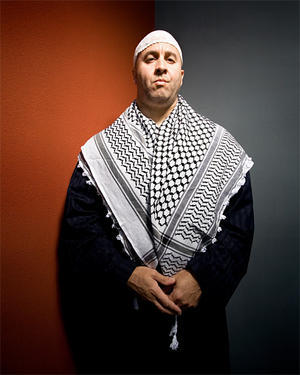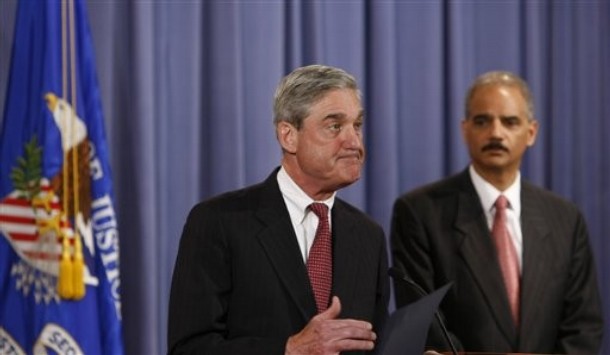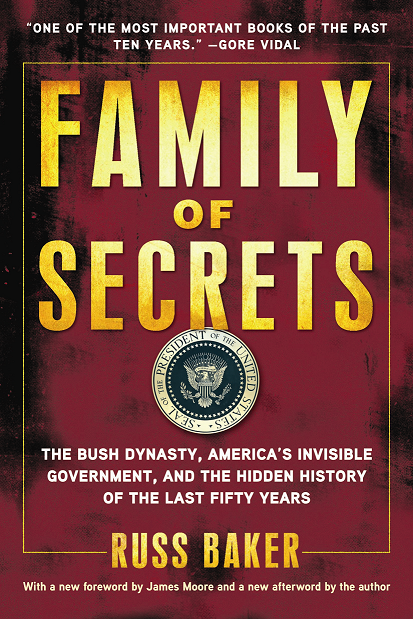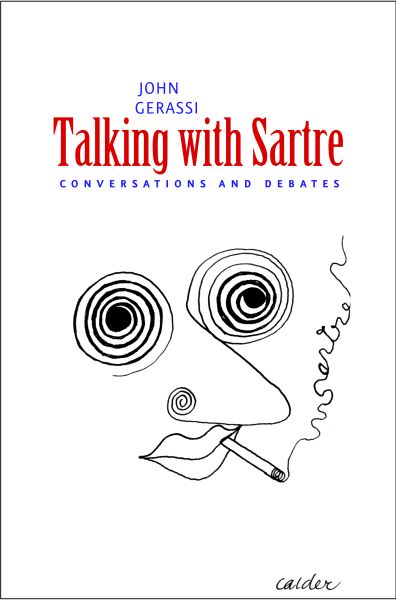Welcome to Law and Disorder Radio
Law and Disorder is a weekly independent civil liberties radio program airing on more than 150 stations and on Apple podcast. Law and Disorder provides timely legal perspectives on issues concerning civil liberties, privacy, right to dissent and practices of torture exercised by the US government and private corporations.
Law and Disorder December 21, 2009
Podcast: Play in new window | Download
Updates:
- Lynne Stewart Visit in Prison
- Write to Lynne: Lynne Stewart / MCC-NY / Prisoner # 53504-054 / 150 Park Row 100007, NY, NY
- Jeffrey Luers – SUV Burning Case – 22 year sentence
- NLG Report State Level Versions of AETA – Beyond AETA (PDF Report/White Paper)
- Green is the New Red
- Guantanamo Moves to Ilinois: Crossing the Rubicon: Preventive Detention
WBAI Listeners Click Here For Rundown on Tito Gerassi
———–
Lawyer’s You’ll Like: Rhonda Copelon Part II
This is the second part of our Lawyers You’ll Like interview with attorney Rhonda Copelon. She is a professor at the Law School of the City University of New York and director of the school’s International Human Rights Law Clinic. Rhonda is also the Legal Advisor to the Women’s Caucus for Gender Justice. Rhonda shares with us, her history of fighting for the constitutionality of the abortion cases in New York City and its effect on poor women in a pre-Roe v Wade climate. She also discuss the Harlem 6 case. Let’s have a listen.
From Article on New International Criminal Court: “The breadth and specificity of gender crimes in the court’s enabling statutes are directly attributable to a global caucus of women that formed in 1997 in the face of apathy and active resistance to prosecuting gender-based crimes. “Women made a huge difference,” said Rhonda Copeland, a professor at the Law School of the City University of New York and director of the school’s International Human Rights Law Clinic.
“They made it impossible to ignore that women have been left out of justice and that we have to be in it,” Copeland said. “If there were nobody there saying ‘this is violence,’ I don’t know how it would have happened.”Rhonda shares with listeners, her history of fighting for the constitutionality of the abortion cases in New York City and its effect on poor women in a pre-Roe v Wade climate. She also discuss the Harlem 6 case.
Rhonda Copelon:
- Harris v McRae – Rhonda Copelon argued. The case tried to get the federal government to pay for poor women’s abortions. We didn’t go to court to get medicaid for women, we went to court to save it.
- McRae has become a 2 line footnote in text books today and there’s a certain way that people have accepted that medicaid doesn’t have to pay for abortions
- 30 years is enough campaign.
- The more these terrible precedents come down, the more we absorb them as culture instead of viewing them as needing to be reversed.
- Historically, based on race and class, women have been treated differently in terms of their reproductive rights.
- When the original anti-abortion laws started to come in to the United States, it was primarily wanting to be sure that the white population of the US would not be out reproduced by the immigrant population and the way to do that was to cut back on abortion.
- The anti-abortion law, the original purposes was to increase reproduction among the elite and also to get rid of those women lay-healers.
- The original abortion laws were class based. In 20th century, class based eugenics laws, sterilization laws. Buck v Bell / you sterilize those who are socially inappropriate.
- Puerto Rican sterilization program. Before Roe v Wade, you couldn’t get a legal sterilization without the rule of 120.
- Religion twisted this around. The Catholic church in the mid 70s – a pastoral plan for pro-life activities.
- The goal was a human right amendment, which was a complete prohibition on abortion. Affecting poor women dependent on tax payer money.
- There’s a lot of evidence that the church went along with family planning in poor neighborhoods in the 60s because it had a population reduction role.
- When you get to abortion, they put the political / religious ahead of the population goals, and what you get is this mobilization to stop medicaid funding for poor women.
- In 1978, you had a historic coming together of the Catholic church and the Protestant evangelicals on the issue of abortion.
- It’s very important to look at the role of extremist religion in this country. When you look at the mega-churches, the power they’ve had to undo the first amendment, in terms of establishment of religion.
- Hyde amendment: the cutoff of medicaid.
Guest – Attorney Rhonda Copelon, professor at the Law School of the City University of New York and director of the school’s International Human Rights Law Clinic. Rhonda is also the legal adviser to the Women’s Caucus for Gender Justice.
———
(Encore Interview:) FBI Defends Use of Informants To Spy On Mosques
FBI Director Robert Mueller defended the practice of using informants to monitor mosques in the United States, despite being heavily criticized by attorneys, and Muslim American leaders. Last month a judge ordered the FBI to submit 100 documents detailing the bureau’s surveillance of Muslim leaders in California, which revealed the FBI paid informants to be provocateurs. These cases fit into patterns where paid informants (often a former felon) entice innocent people into a crime, not unlike the Liberty 7 case, the Fort Dix case and the Memorial Day weekend terror plot in upstate New York. In the New York case, Mike German, a former FBI agent of 16 years and now an attorney with the ACLU told Law and Disorder, they “could have wrapped up without making it seem like they’re saving New York City from this terrible destruction.” The media then reports the story which will often prop up the ongoing “War on Terror.”
Shakeel Syed:
- Council of Islamic Organizations sent a letter to Attny Gen. Eric Holder complaining about the FBI infiltration and harassment
- We are baffled at this time, there is a great deal of surplus of rhetoric by the current administration and a deficit at the policy level.
- When Mueller says the FBI will escalate surveillance of mosques and the Obama Administration is silent, that disturbs me.
- This is legal religious bigotry, Mueller is lying in regard to they’re not surveilling the mosques but only the suspected individuals.
- I have stopped using the word provocateur, I shuffle between using the word provocateur and predator.
- Those targeted have pending immigration and naturalization files or converting from H1 visa to resident visa.
- When our community was doing outreach with public officers, I was in the FBI offices during 2003-2005, and I realized then I was being tailgated.
- My phone was tapped on. A few times the phone automatically dialed the local police.
- My hope as a Muslim American is that good American people will stand up in these challenging times.
Guest – Shakeel Syed, Executive Director of the Islamic Shura Council of Southern California.
———————————————————–
Law and Disorder December 14, 2009
Podcast: Play in new window | Download
Updates:
- Veronica Jones – Mumia Witness Passes
- Cuban Five Resentencing Update
- Heidi Boghosian’s Father – Varujan Boghosian Gallery Opening
- CCR Torture Team Trading Cards Sent To Library of Congress
- (NEW) Michael Ratner – Muting Our Criticism of Obama: If We Don’t Speak Out Who Will?
—–
From the Kennedy assassination to Watergate to Prescott Bush’s ties to Nazi Germany, the book Family of Secrets: The Bush Dynasty, the Powerful Forces That Put It in the White House, and What Their Influence Means for America, digs into the hidden history of the Bush family. Author Russ Baker takes on the Bush legacy with powerful investigative journalism. One review states that the chapter on George W Bush’s private life is worth the price of the book alone. Baker also reveals George H Walker Bush’s connections with the CIA began in 1953, not when he publicly joined the agency in 1976. Bush’s oil companies were used as fronts for the intelligence agencies around the world with an agenda controlled by power brokers. Award winning investigative reporter Russ Baker also tells us why this insight into the Bush family is important to know now during the Obama administration.
- I was training investigative journalists in Yugoslavia 2002, and when I traveled Europe people were asking me what has happened to your country. I knew superficially what happened, but I didn’t know why it happened.
- From the son, I looked into the father,because had the father not been president, the son wouldn’t be president.
- George HW Bush had a secret past more than 20 years, preceding his appointment to the CIA in 1976
- George HW Bush, starts up offshore drilling companies that make no sense, very few customers, very few rigs, but he’s traveling all over the world. It’s perfect intelligence cover.
- They even put a rig in Cuba before the Bay of Pigs, they had Cuban exiles working there
- Ok, he’s working in intelligence, I assume that’s what he’s doing while he was a Congressman, an oil man, an ambassador to the UN. This is fascinating and also deeply troubling.
- I think what we’re looking at is a permanent construct of power.
- Journalists: I don’t think they’ll say so publicly but privately they’ll tell you how scared they are, whether for their personal safety or they don’t want to lose their job.
- The Bush dynasty was the ultimate triumph of the military industrial complex that Dwight Eisenhower, a formal general had warned us about.
- Harry Truman speech on the CIA: I signed the Act that created the CIA, but they never told me the kinda things that they got in to.
- The Bush Family: You see them as the ultimate operatives on behalf of the coalition of powerful Wall St. interests, military contractors, resource extraction mining interests, going all over the world to bring back the plunder essentially.
- They (Bush family) are the representatives, they are not the bosses.
- Obama: It’s very difficult to go against these interests. Our economy runs on war, it’s very difficult to undo that.
- I, myself was naive, and I covered politics for more than 20 years, and I never understood the extent at which democracy is subverted.
- Power in America resides in pool of people about whom we’ve never even heard, the only way you find out is if you look at these Fortune 1000 lists. This is not a conspiracy, it’s just the way things work.
- Michael Smith: When I was starting out and learning how this country works, I was reading C.Wright Mills, Ferdinand Lunberg.
- Guest host Jim Lafferty: This is a matter of commonality of interests that run this country
- Whowhatwhy.com – specialized in doing deep politics investigation – historic epics that haven’t been properly explored.
- Everybody hated Kennedy except the people.
Guest – Russ Baker is an award-winning investigative reporter with a track record for making sense of complex and little understood matters. He has written for the New Yorker, Vanity Fair, the Nation, the New York Times, the Washington Post, the Village Voice and Esquire. He has also served as a contributing editor to the Columbia Journalism Review. Baker received a 2005 Deadline Club award for his exclusive reporting on George W. Bush’s military record. He is the founder of WhoWhatWhy/the Real News Project, a nonpartisan, nonprofit investigative news organization, operating at whowhatwhy.com.
——————–
MondoWeiss: The War of Ideas In the Middle East
Did the recent bombing of Gaza and killing of 1400 Palestinians create a breakdown in the traditional Jewish American support for Israel? In the first of its kind, last month’s J Street Conference brought together 1500 people to the meeting aimed at ending the Arab-Israeli and Israeli-Palestinian conflicts peacefully and diplomatically. The conference is a political arm of the pro-Israel pro peace movement that also lobbied more than 100 members of Congress to press forward with the peace process and two state solution.
Meanwhile the Boycott Divest and Sanction movement gains momentum and Code Pink activists continue to protest, demonstrate in and around Gaza. As many listeners may know living conditions in the Gaza Strip has deteriorated. Salt water has contaminated a large percentage of drinking water and is damaging the kidneys of Palestinian children.
- J Street is the alternative Israel lobby or alternative Jewish lobby because they identify themselves as a Jewish organization.
- They are taking on AIPAC, which has traditionally taken on the role to shape the US response to Israel.
- It was landmark moment in changing the original purpose of the Israel lobby to speak with one voice
- Here’s a lobby that says. . guess what? Jews are not going to speak with one voice, we’re going to have a lot of different voices that contend on this issue.
- Finally there’s a little bit of fragmenting of this reactionary force of AIPAC and the Israel lobby.
- 160 Congressmen were at the J Street Conference in Washington DC. You saw lefty-Jews with a spring in their step. The conference disappointed me in a number of ways, it only had Zionists, progressive Zionists. It condemned the Goldstone Report
- There were some bright lights at this conference. It’s not that different from AIPAC in a number of ways.
- There was a strong sense if you were to speak there (J Street Conf.) you had to be a Zionist.
- Zionist: I think it is support for a Jewish state. We need a Jewish state because we could be persecuted again and we need to go somewhere.
- Generally the rank and file of these people are old Jewish leftys. J Street represents a break in the heresy. The heresy is that we speak with one voice. This process of colonization continues in the West Bank, unabated basically.
- One state with an apartheid system and that’s going to be the struggle. I think if you scratch any Jew in this country he has some connection to Israel. For me it was the 9/11 thing. As they say.
- My brother said, I demonstrated against the Vietnam War, as I did, but my Jewish newspaper says the Iraq War could be good for Israel.
- I couldn’t avoid the issue anymore then when I confronted the issue I became this Palestinian Solidarity person.
- The desperation is heightened by the fact there’s so little recognition of that in the United States.
- Goldstone, a Jewish Jurist from South Africa who fought apartheid and Bosnian war crimes, that he could say. . look this is persecution . . and that can be so ignored, defied and stomped on in the United States. .it’s a horror.
- Our country can affect the situation ( In Gaza / West Bank)
Guest – Peter Weiss, longtime journalist and regular contributor to the Nation and a fellow at the Nation Institute Philip is the author of two books a political novel, Cock-A-Doodle-Doo, and American Taboo, an investigative account of a 1976 murder in the Peace Corps in the Kingdom of Tonga. His website is called Mondoweiss, it explores Middle East policy and Israel/Palestine issues. Philip attended the J Street Conference 2 months ago.
————————————————————–
Law and Disorder December 7, 2009
Podcast: Play in new window | Download
Updates:
- Gregory Craig Steps Down As Whitehouse Lawyer
- Obama Adds Troops In Afghanistan (Pipelanistan)
- Illinois: MCC College Calls Off GTMO Lecture, Cites Not Prepared For Crowds?
- McHenry County College, 8900 US Hwy 14, Crystal Lake, Illinois 60012-2738 – (815) 455-3700
- WBAI Listeners Click Here For Rundown
- (NEW) Michael Ratner – Muting Our Criticism of Obama: If We Don’t Speak Out Who Will?
————
Talking With Sartre: Conversations and Debates
Professor John Gerassi, author of the recently published book titled – Talking With Sartre: Conversations and Debates joins hosts in studio. As a child, Gerassi’s parents had become close friends with the French existentialist philosopher, playwright, and novelist, Jean Paul Sartre. Later in his life, Gerassi conducted a series of interviews in the early 70s. These interviews are now edited into book form and as one review states, – quote – it has produced this revelatory and breathtaking portrait of one of the world’s most famous intellectuals.
The brings into to focus Sartre’s thinking on the Spanish Civil War, World War II, and the disintegration of colonialism, it also reveals how Sartre has wrestled with the apparent contradiction between his views on freedom and the influence of social conditions on our choices and actions.
John (Tito) Gerassi:
- My father was an artist and said ridiculous things like I don’t care if my son starves or my wife starves, first I paint.
- This appealed to Sartre who said in effect the same thing as a man of letters.
- Sartre became fascinated by my father. My father refused to join the OSS / CIA
- Gerassi to Sartre: You have a problem uniting the idea of free choice that you have in existentials because you begin with the I, to the Marxist situation which is a class derivative to which you want to align. I don’t see how you can align them.
- After a series of criticisms to this dichotomy, Sartre said, “This kid’s brilliant.” And so I became part of the family.
- Sartre always supported counterterrorism. Those who fought the establishment’s terrorism.
- Sartre’s anti-position has always been consistently correct.
- He opposed Ridgeway when Ridgeway took over NATO. Get your base out of France.
- No country is free with a foreign base on its territory. If you get rid of Ridgeway don’t put in a European general.
- During the Algerian War, the magazine that Sartre basically created called Modern Times, supported the Algerians right from the beginning.
- It supported sedition, that was a step further than any lefty in France.
- Supporting sedition is one thing, but they actually supported it in action.
- They were called the suitcase carriers, they gave medicine and ammo to Algerians in suitcases.
- The editor in chief of Modern Times assembled 120 intellectuals and produced the Declaration of 121.
- It included Sartre and existentials but also the Catholic left and notable communist intellectuals.
- That began the split in the communist party.
- In Algeria, the communist party there was in favor of the Algerian revolution.
- Sartre : Never judge the powerless by the same criteria that you judge the powerful.
- That means you support the Palestinians, and you praise the suicide bombers because you judge them with a different criteria than Israelis who have tanks, airplanes etc . .
- Sartre interpretation: The fact that he (Ft Hood shooter) is a member of a dominated class, and he is rebelling against the dominating class. He is perfectly justified in what he’s doing.
- Sartre: The trouble with all revolutions is they give up too soon.
- He did go to all sorts of places and because he was Sartre, he got to see the leaders of Russia and China, the only influence where he was pleased with contact was Che Gueverra.
- Supporting the early action of the Palestinians: When Israel subjugates the Palestinians, takes away their lands. . I’ve always supported counterterror against established terror.
- Marxist – Group Infusion – people briefly connecting, moving from I to we.
Guest – Professor John Gerassi, once an editor at Time magazine, then at Newsweek, who obtained his PhD at LSE, is a long time civil rights and anti-war militant. He is the author or editor of ten books and scores of articles and pamphlets published on both sides of the Atlantic. He is currently Professor of Political Science at the City University of New York.
———————————————–



